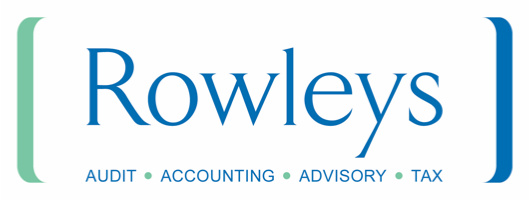News & Events
Is now the time for businesses to take advantage of the super deduction?
11th October 2022
17th October 2022 – UPDATE
On Friday 14th October 2022 we had a new Chancellor and another Mini-Budget U-Turn, changing the previously announced plan to scrap the proposed increase to Corporation Tax.
So what does this mean? The Corporation Tax will increase to 25% from 1 April 2023, affecting companies with profits of £250,000 and over. Small companies with profits up to £50,000 will continue to pay corporation tax at 19%, with profits between these two figures being subject to a tapered rate.
We assume this means that the Capital Allowance Super Deduction of up to 130% will be here until 31 March 2023. However the next planned government announcement is set for October 31st.
Following the government’s decision that they are making a U-turn on the proposal to abolish the 45% tax rate for the UK’s highest earners, it raises questions as to what other changes might be made between now and the next scheduled government fiscal announcement, now scheduled for 31st October, instead of 23rd November. Rowleys Associate Tax Director, Steve Nicholls, explores whether businesses need to start taken advantage of other government incentives, such as the super deduction, before it’s too late?
What about the super deduction?
On 3rd March 2021, the government announced that a temporary allowance – known as the ‘Super Deduction’ – to help encourage businesses to invest and to promote growth following the Covid-19 pandemic would be introduced. At the same time, the government announced the Corporation Tax rate was to increase to 25% from 1 April 2023.
The benefits of the Super Deduction were that for the two years from April 2021, any investments a business makes in qualifying machinery and equipment will qualify for a 130% capital allowances deduction. For example, a company investing £10,000 could claim a deduction of £13,000 on taxable profits.
So, on 1 April 2023 the Corporation Tax rate was due to increase to 25% and the Super Deduction would be no more.
The Super Deduction was, in part, to encourage businesses to spend and invest now rather than wait until the Corporation Tax rate increased.
Should businesses take advantage of the super deduction sooner rather than later?
The Government U-turn on the 45% tax rate – a measure only recently announced – leads to questions and uncertainty around what’s to come in the forthcoming announcement. It’s difficult to say what is to come given due to the number of key changes announced in the September “mini-budget”, but the fact that it’s still going ahead raises the question of what else is to come?
With so much uncertainty, it would seem sensible for businesses to take advantage of temporary tax incentives, such as the super deduction, whilst they still can.
Whilst changes are often announced ahead of coming into effect, there’s obviously no guarantees. So, if you have plans to invest in machinery or equipment that qualifies for the super deduction, the only way to guarantee that you’ll get the tax reduction is to invest prior to any future announcements.
So, for businesses that have budgeted for certain capital expenditure, it would be prudent to consider if these can be acquired before the 31st October to make the most of the 130% before it is potentially removed.
What about the changes to the 45% tax rate?
The government announced in the mini-budget that they would scrap the 45% additional tax rate for those earning above £150,000. However, on the 3rd October, at the Conservative Party Conference, it was revealed that the change will not go ahead and the 45% additional tax rate will remain.
What does this mean for higher earners?
If you’re earning above £150,000 you will continue to be subject to the 45% tax rate. If you’re able to plan your income to be more tax efficient, it’s worth considering making pension payments, or capping your income at £100,000 (before the Personal Allowance is taken away).
As always, before making any decisions around capital investments and income planning, we’d advise talking to a tax specialist to understand how the rates apply to you and your business.
If you have any questions or need help, please get in touch with our friendly team. No obligations, just a friendly chat to help you find the best way to get to where you want to be.
